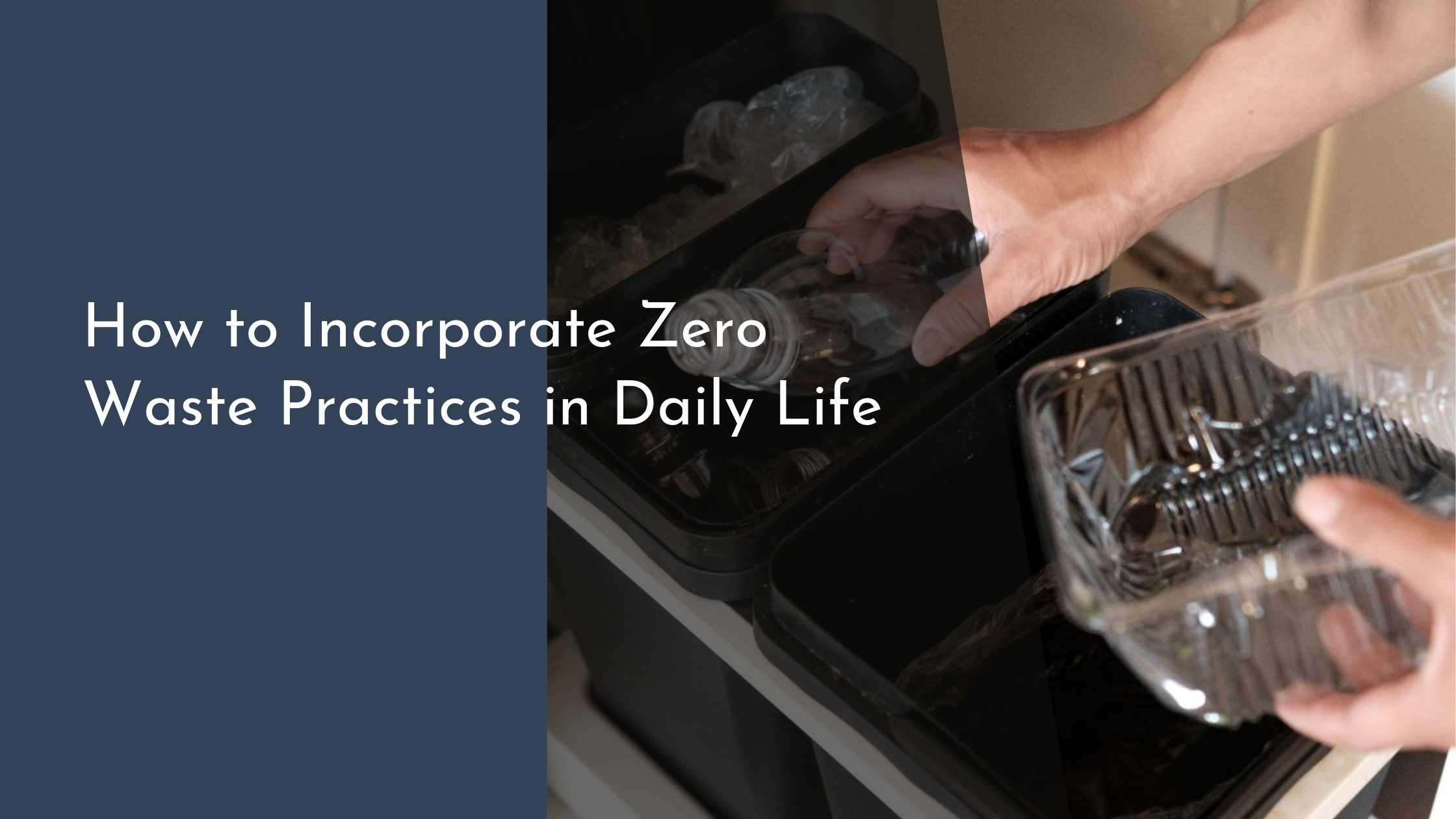How to Incorporate Zero Waste Practices in Daily Life
The zero waste movement is gaining momentum as more people recognize the impact of their consumption habits on the environment. Transitioning to a zero waste lifestyle is not only beneficial for the planet but also promotes mindfulness and creativity. By taking small steps and making thoughtful changes, anyone can reduce their waste production and contribute to a more sustainable future. In this article, we will explore ways to incorporate zero waste practices into daily life, making it simpler and more enjoyable.
Understanding the Zero Waste Movement
The zero waste movement centers around the philosophy of minimizing waste by rethinking consumption habits, reducing what we discard, and finding ways to reuse and recycle. It emphasizes the 5 R’s: Refuse, Reduce, Reuse, Recycle, and Rot (compost), which guide individuals in making smarter, eco-friendly choices. By refusing unnecessary items, reducing consumption, and embracing reusable alternatives, individuals can significantly decrease the amount of waste sent to landfills.
Understanding the movement also involves recognizing its broader impact on the environment. The zero waste approach helps cut down on pollution, conserves resources, and reduces greenhouse gas emissions associated with traditional waste management processes. As awareness spreads, communities are becoming more engaged in this lifestyle, creating a ripple effect that inspires systemic change in waste production and management. Transitioning to zero waste might feel daunting at first, but with a clear purpose and the right strategies, it’s an achievable and rewarding goal.
Simple Swaps for a Low-Waste Lifestyle
Implementing simple swaps in your daily routine is an excellent way to transition into a low-waste lifestyle. Start by replacing single-use items with reusable alternatives. For instance, use a stainless steel water bottle instead of buying plastic bottles, and opt for cloth shopping bags over plastic ones. Swap paper towels with washable cloths and switch to a bamboo toothbrush instead of a plastic one. These small changes not only reduce waste but often save money in the long run.
Another effective swap is to buy in bulk and avoid products with excessive packaging. Use your own jars and containers when shopping for dry goods like grains, nuts, and spices. Choose products with minimal packaging or those that offer refills, such as cleaning supplies in concentrated forms. By being mindful of packaging, you can significantly cut down on plastic waste and support brands that prioritize sustainability.
Creative Ways to Repurpose and Reuse
Repurposing and reusing items that you already own can be a fun and creative aspect of a zero waste lifestyle. Rather than discarding old clothes, consider using them for a sewing project or turning them into cleaning rags. Glass jars can transform into storage containers, planters, or even stylish candle holders. Finding new uses for items not only prevents waste but also fosters creativity and resourcefulness.
Incorporating upcycling into your daily life can also extend to food scraps. Vegetable peels and scraps can be used to make homemade broth, while citrus peels can be turned into natural cleaners. Even coffee grounds have multiple uses, from fertilizing plants to exfoliating skin. By viewing potential waste as a resource, you not only reduce your environmental impact but also discover innovative ways to use everyday materials.
Building Community for Sustainable Living
Building a community around sustainable living can amplify the impact of zero waste practices. Joining or forming a local zero waste group can provide support, share resources, and inspire new ideas. Community events like swap meets, repair cafes, or zero waste workshops can bring people together to exchange items, learn skills, and promote sustainable habits. These gatherings foster a sense of camaraderie and collective action towards a common goal.
Additionally, engaging with local businesses can enhance sustainable living efforts. Support shops that offer bulk purchasing options, second-hand stores, and businesses that prioritize eco-friendly practices. Collaborating with local stakeholders to advocate for better waste management policies and increased recycling facilities also strengthens the community’s commitment to sustainability. Building a network of like-minded individuals and businesses creates a supportive environment that encourages and sustains zero waste efforts.
Embracing a zero waste lifestyle is a journey of continuous learning and adaptation. By understanding the principles of the zero waste movement, making simple swaps, and finding creative ways to repurpose items, you can effectively minimize waste in your daily life. Building a community around these efforts not only amplifies your impact but also fosters collective action towards a more sustainable future. As you embark on this journey, remember that every small change contributes to a larger environmental benefit, making the world a cleaner and greener place for generations to come.


